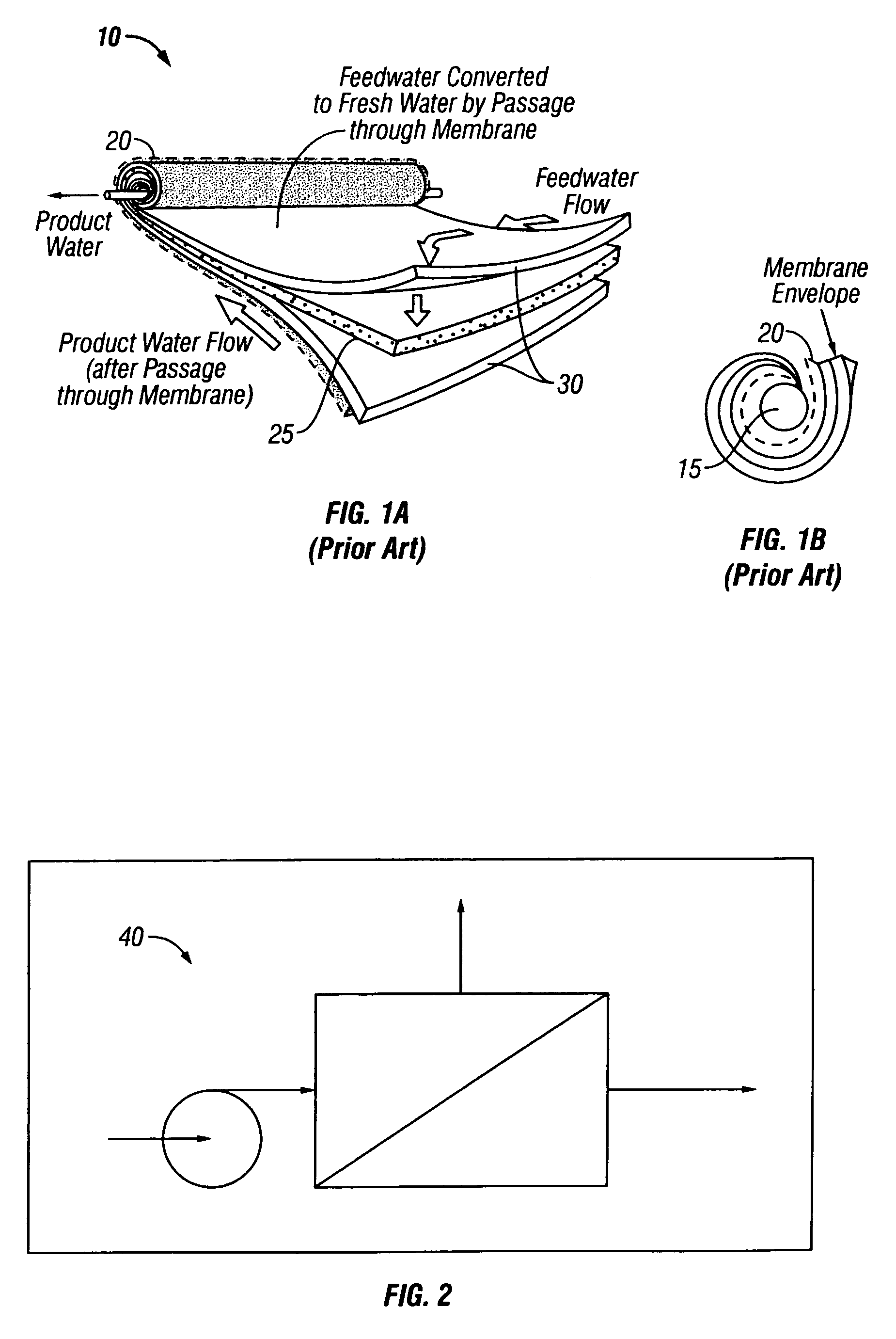Method of treating reverse osmosis membranes for boron rejection enhancement
a reverse osmosis membrane and boron technology, applied in membranes, filtration separation, separation processes, etc., can solve the problems of high cost of ion exchange processes, frequent regeneration, and conventional seawater reverse osmosis systems that do not meet the provisional who boron limit of 0.5 parts-per-million
- Summary
- Abstract
- Description
- Claims
- Application Information
AI Technical Summary
Benefits of technology
Problems solved by technology
Method used
Image
Examples
Embodiment Construction
[0038]In the following paragraphs, the present invention will be described in detail by way of example with reference to the attached drawings. Throughout this description, the preferred embodiment and examples shown should be considered as exemplars, rather than as limitations on the present invention. As used herein, the “present invention” refers to any one of the embodiments of the invention described herein, and any equivalents. Furthermore, reference to various feature(s) of the “present invention” throughout this document does not mean that all claimed embodiments or methods must include the referenced feature(s).
[0039]The present invention is directed to a method of treating a reverse osmosis membrane, wherein the reverse osmosis membrane is put in contact with a chemical coating having properties for increased boron rejection. The chemical coating may also comprise a biocidal coating that reduces biofouling of reverse osmosis membrane surfaces. The preferred coating of the ...
PUM
| Property | Measurement | Unit |
|---|---|---|
| pressures | aaaaa | aaaaa |
| pressures | aaaaa | aaaaa |
| pressures | aaaaa | aaaaa |
Abstract
Description
Claims
Application Information
 Login to View More
Login to View More - R&D
- Intellectual Property
- Life Sciences
- Materials
- Tech Scout
- Unparalleled Data Quality
- Higher Quality Content
- 60% Fewer Hallucinations
Browse by: Latest US Patents, China's latest patents, Technical Efficacy Thesaurus, Application Domain, Technology Topic, Popular Technical Reports.
© 2025 PatSnap. All rights reserved.Legal|Privacy policy|Modern Slavery Act Transparency Statement|Sitemap|About US| Contact US: help@patsnap.com



